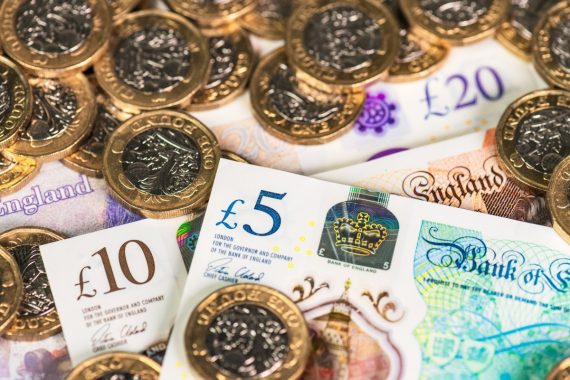The Treasury has rejected calls from specialist GP accountants to take action to prevent ‘huge’ tax bills for thousands of GPs.
Pension experts have warned that the average GP could be hit with a £33k tax bill due to the ‘unfair ‘way inflation is applied to their pension.
In a letter to the Treasury in May, the Association of Independent Specialist Medical Accountants (AISMA) warned of mounting concern that perceived unfairness in the annual allowance tax could lead to GPs either reducing sessions or leaving the NHS.
It asked for a repeat of the 2019/20 compensation scheme that protected clinicians from significant tax penalties on their pension growth to free them up to ‘work at maximum capacity in the NHS’.
But in response, the pensions and savings team within the Treasury said: ‘The Government is not minded to replicate this scheme at present’.
It stated: ‘Clinicians who are members of the NHS Pension Scheme and who, as a result of work undertaken in the 2019-20 tax year, face a tax charge in respect of the growth of their NHS pension benefits above their annual allowance limit could have elected, until 31 July 2021, to have this charge paid by the NHS Pension Scheme.
‘The pension scheme would have paid the charge now and the individual’s NHS employer would fully compensate them in retirement for the effect of the 2019-20 Scheme Pays deduction on their retirement income.’
The BMA had also called for the 2019/20 compensation scheme to be repeated as part of urgent actions to resolve the ‘unfair’ tax bills as a result of inflation.
Under the special arrangement, members of the NHS pension scheme could elect for the scheme to pay the pension annual allowance tax charge for 2019/20 on their behalf and will then be compensated for the effect of the deduction on their pension income when they retire.
AISMA had also wanted to see an amendment to legislation to align HMRC and NHS pension calculations to remove inflation differences and make future predictions easier.
And it asked the Treasury to recognise years of negative growth and allow them to be carried back to the previous year to allow matching of tax charges to real growth over a longer period.
In its letter, it said: ‘The likely scenario is that there will be high pension growth in 2021/22 and 2022/23, followed by negative growth in 2023/24.
‘This means GPs will be taxed heavily in the two earlier years but will receive no relief for the third year.’
It added that average earning GPs could end up facing ‘high’ tax bills ‘simply due to inflation, which was never intended by the legislation’.
And some ‘may decide to bring forward retirement’ because ‘in many cases’, they will exceed their £40,000 threshold allowance available ‘simply due to the disconnect between the way inflation figures are calculated’, it said.
‘Whilst GP numbers may not fall, the unintended consequence will be a reduction in the sessions they choose to work,’ it added.
But the Treasury said that its system of calculating annual allowance ‘ensures that defined benefit pensions keep pace with inflation and make these schemes some of the most generous pension provision available’.
It added: ‘The NHS Pension Scheme is a defined benefit scheme and is one of the most generous schemes available, whilst these measures only affect the highest-earning savers. 99 per cent of pension savers make annual contributions below £40,000, the level of standard annual allowance which has applied from 2014/15.’
It comes as the BMA announced this week it has been granted a judicial review into the Government’s ‘unlawful’ handling of NHS pensions.
What is the annual allowance compensation scheme?
Under the current NHS pension scheme, the highest-earning GPs pay at least 14.5% in contributions, but a tapered annual allowance limits the amount of money that can go into the pension pot each year without facing significant tax penalties.
The pensions taxation rules, in particular around annual and lifetime allowances, push GPs to reduce their hours or retire early to avoid large tax bills.
But for the 2019/20 tax year, GPs facing a tax charge over the pension savings annual allowance threshold can have this charge paid by the NHS pension scheme by filling in and returning a scheme pays election and a compensation form.
To access the compensation, GPs will use the ‘scheme pays’ arrangement already available to NHS pension scheme members, which usually allows tax charges to be deferred until retirement.
GPs are required to submit a ‘scheme pays’ election to NHS Pensions before they can submit a claim for the compensation to Primary Care Support England (PCSE).
The Government made the compensation available in 2019 in order to allow clinicians to take on more shifts or sessions without worrying about an annual allowance charge on their pensions.
Pulse October survey
Take our July 2025 survey to potentially win £1.000 worth of tokens

Related Articles
READERS' COMMENTS [2]
Please note, only GPs are permitted to add comments to articles













If our paid representatives can’t sort this then shame on them. I am having to drop a day when I want to work full time as it is haviing a ludicrous impact. I made sacrifices as a junior to pay added years which are now crippling me. So backwards!!!!
The discussions around pension errors (effecting the majority of us) and the shambolic timings all mean we can not make safe or accurate decisions. Full on bonkers.
At least we’ve not awarded PCSE a new contract….
so long as they don’t start whining when everyone starts going part time………..or going altogether !
WIGIG – when it’s gone, it’s gone !